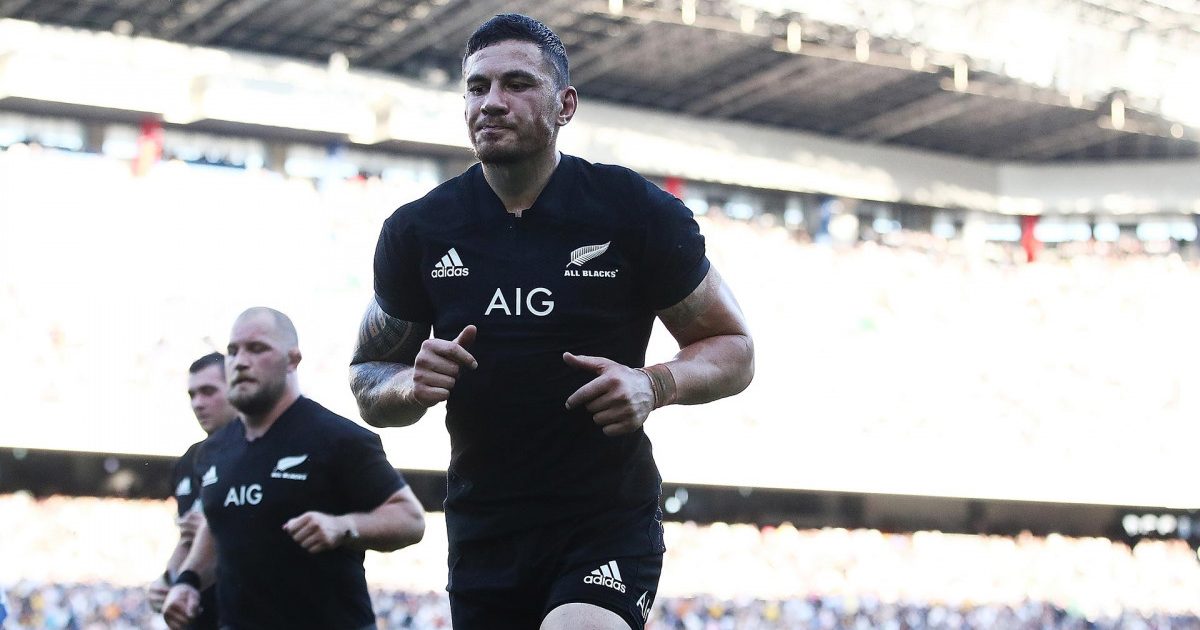SBW's radical plan to fix the Wallabies and Australian rugby

Former All Blacks great Sonny Bill Williams has put forward a radical plan to help fix the Wallabies and rugby union within Australia.
Speaking on Stan Sport‘s Rugby Heaven following Australia’s 33-25 Bledisloe Cup defeat to the All Blacks, Williams said the Wallabies could benefit if Rugby Australia [RA] allowed more top local-based players to play club rugby abroad.
The 58-test international said getting RA’s biggest earners off its payroll would enable the national governing body to reinvest its funds into schoolboy rugby and help rugby union thrive at grassroots level.
Williams, who won two NRL Premierships and played 12 tests for the Kiwis in rugby league, said the 13-man sport is the more dominant rugby code at schoolboy level in Australia due to its accessibility in public schools.
By comparison, Williams noted that rugby union was more prominent within Australia’s private schools.
The 36-year-old argued that by making rugby union more prevalent in public schools, the Wallabies and RA would be able to build more depth at the higher levels of the game.
“The old Giteau rule,” Williams said when asked about Australia’s eligibility laws, which allows players with 60 or more test caps and at least seven years of professional playing experience in Australia to play for the Wallabies while being based overseas.
“For me, I’m not too far away from controversy, as I’ve found throughout my career, but, for me, when it comes to that rule, I think the question should be what do we want to get out of the Wallabies?
“What do we want to get out of the Wallabies at that level? We want them competing against the top-tier nations, we want them beating them consistently, we want them winning the Bledisloe Cup consistently.
“How do you do that? For me, I think we’ve got it wrong in the sense we think by hoarding the top-earned players, it’s not going to happen. The source of the problem is the footy at school.
“The majority of public schools all play rugby league, and it’s the majority of private schools that will play rugby union.
“How do we change that? Well, I wouldn’t mind that rule going where we get some top-earned players going overseas.
An ex-All Black has slammed the Wallabies for missing the chance to snap a 35-year winless drought against the All Blacks at Eden Park on Saturday. #AllBlacks #Wallabies #BledisloeCup https://t.co/CUScsamb0c
— RugbyPass (@RugbyPass) August 11, 2021
“Say a player that’s on 500 grand that could go overseas and get $1 million, go overseas and get that, and that 500 grand goes back into Australian rugby union.
“Australian rugby union is struggling at the moment, so the money that’s left over from that, where does that money go? It goes into schoolboy footy.
“Rugby league will never die in public schools, but if they can just open a little bit of space and create a bit of space for rugby union to thrive, I think that’s where you’ll see the depth in the higher ranks come into play.”
According to last year’s Annual Report, RA spent $11.7 million on player payments and Rugby Union Players’ Association costs in 2020, down by almost $9 million from 2019 due to wage cuts forced on by Covid-19.
By comparison, RA spent over $2.6 million on community rugby last year, an expenditure decrease of more than $1.5 million from the year before that as a result of the global pandemic.
Williams, a two-time Rugby World Cup winner and a 2012 Super Rugby champion, added that he supports players, particularly those with Polynesian heritage, being able to look after themselves and their families by taking large pay cheques overseas.
Otago have been dealt a hefty blow in the opening week of their 2021 NPC season after losing star wing Jona Nareki for the entire campaign due to injury. #BunningsNPC https://t.co/0OUUggBkFs
— RugbyPass (@RugbyPass) August 11, 2021
“I think it ticks both boxes in the sense that I’m all for players earning, looking after themselves and their families, especially Polynesian families, because it’s not often their immediate families. You’re looking after quite an extended group.”
Williams’ comments come as Wallabies head coach Dave Rennie re-called Tokyo Sungoliath midfielder Samu Kerevi into the national squad ahead of their second Bledisloe Cup clash with the All Blacks in Auckland this weekend.
With 33 test caps to his name, Kerevi doesn’t meet the Giteau Law threshold, but Rennie has been allowed to select two offshore-based players with fewer than 60 test caps in his current squad.
The other player who fits that bill is uncapped midfielder Duncan Paia’aua, who plays his club rugby for French side Toulon.
Kerevi, who last played for the Wallabies at the 2019 World Cup in Japan, joins Rennie’s squad after having played sevens for Australia at the recent Tokyo Olympics.
Kerevi and Paia’aua join veteran first-five Quade Cooper, who plays for the Hanazono Kintetsu Liners in second division of the rebranded Japan Rugby League One, as the overseas-based players in the current Wallabies squad.



















































